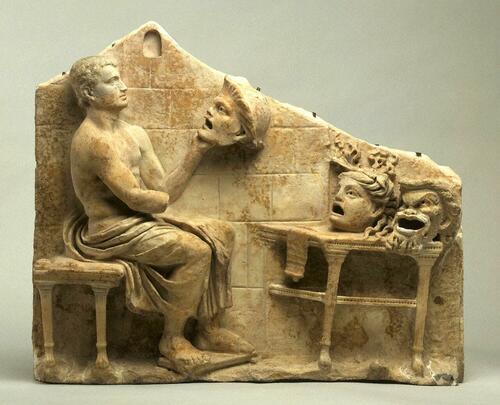
For those of us who have criticized the cancel culture in higher education for years, the attacks and shunning have been unrelenting. The media has played a role in that culture and none more prominently than the New York Times. Recently, however, the mob came for liberal professors and media who have remained silent for years as conservatives and others were targeted on campus.
Suddenly, there is a new interest in free speech and academic freedom, including by the Times editors who blamed cancel culture for the recent demonstrations and disruptions on campus.
Until good liberals were targeted on campus, cancel culture was treated as free speech. It did not matter that preventing others from speaking or being heard is the very antithesis of free speech.
The New York Times reached true infamy in the controversy over publishing Sen. Tom Cotton’s (R., Ark.) op-ed where he argued for the possible use of national guard to quell violent riots around the White House.
It was one of the lowest points in the history of modern American journalism. Cotton was calling for the use of the troops to restore order in Washington after days of rioting around the White House. While Congress would “call in the troops” six months later to quell the rioting at the Capitol on January 6th, New York Times reporters and columnists called the column historically inaccurate and politically inciteful.
Reporters insisted that Cotton was even endangering them by suggesting the use of troops and insisted that the newspaper cannot feature people who advocate political violence. One year later, the New York Times published a column by an academic who had previously declared that there is nothing wrong with murdering conservatives and Republicans.
Later, former editors came forward to denounce the cancel culture at the Times and the censorship of opposing views.
At the same time, the Times has embraced “advocacy journalism.” Former New York Times writer (and now Howard University Journalism Professor) Nikole Hannah-Jones is a leading voice for advocacy journalism. Indeed, Hannah-Jones has declared “all journalism is activism.”
Now, however, liberal professors and writers are being targeted. After years of turning a blind eye to conservative and libertarian figures being purged from faculties or canceled in events, the Times is alarmed that
…students and other demonstrators disrupting college campuses this spring are being taught the wrong lesson — for as admirable as it can be to stand up for your beliefs, there are no guarantees that doing so will be without consequence.
What is most striking is how the editors chastise administrators for lacking the courage that they have not shown for years in standing up to their cultural warriors:
For several years, many university leaders have failed to act as their students and faculty have shown ever greater readiness to block an expanding range of views that they deem wrong or beyond the pale. Some scholars report that this has had a chilling effect on their work, making them less willing to participate in the academy or in the wider world of public discourse. The price of pushing boundaries, particularly with more conservative ideas, has become higher and higher…
It has not gone unnoticed — on campuses but also by members of Congress and by the public writ large — that many of those who are now demanding the right to protest have previously sought to curtail the speech of those whom they declared hateful.
It is certainly good to see the “Old Gray Lady” have second thoughts about cancel culture. However, she might want to look inwardly before casting more cultural stones.
For those of us who have criticized the cancel culture in higher education for years, the attacks and shunning have been unrelenting. The media has played a role in that culture and none more prominently than the New York Times. Recently, however, the mob came for liberal professors and media who have remained silent for years as conservatives and others were targeted on campus.
Suddenly, there is a new interest in free speech and academic freedom, including by the Times editors who blamed cancel culture for the recent demonstrations and disruptions on campus.
Until good liberals were targeted on campus, cancel culture was treated as free speech. It did not matter that preventing others from speaking or being heard is the very antithesis of free speech.
The New York Times reached true infamy in the controversy over publishing Sen. Tom Cotton’s (R., Ark.) op-ed where he argued for the possible use of national guard to quell violent riots around the White House.
It was one of the lowest points in the history of modern American journalism. Cotton was calling for the use of the troops to restore order in Washington after days of rioting around the White House. While Congress would “call in the troops” six months later to quell the rioting at the Capitol on January 6th, New York Times reporters and columnists called the column historically inaccurate and politically inciteful.
Reporters insisted that Cotton was even endangering them by suggesting the use of troops and insisted that the newspaper cannot feature people who advocate political violence. One year later, the New York Times published a column by an academic who had previously declared that there is nothing wrong with murdering conservatives and Republicans.
Later, former editors came forward to denounce the cancel culture at the Times and the censorship of opposing views.
At the same time, the Times has embraced “advocacy journalism.” Former New York Times writer (and now Howard University Journalism Professor) Nikole Hannah-Jones is a leading voice for advocacy journalism. Indeed, Hannah-Jones has declared “all journalism is activism.”
Now, however, liberal professors and writers are being targeted. After years of turning a blind eye to conservative and libertarian figures being purged from faculties or canceled in events, the Times is alarmed that
…students and other demonstrators disrupting college campuses this spring are being taught the wrong lesson — for as admirable as it can be to stand up for your beliefs, there are no guarantees that doing so will be without consequence.
What is most striking is how the editors chastise administrators for lacking the courage that they have not shown for years in standing up to their cultural warriors:
For several years, many university leaders have failed to act as their students and faculty have shown ever greater readiness to block an expanding range of views that they deem wrong or beyond the pale. Some scholars report that this has had a chilling effect on their work, making them less willing to participate in the academy or in the wider world of public discourse. The price of pushing boundaries, particularly with more conservative ideas, has become higher and higher…
It has not gone unnoticed — on campuses but also by members of Congress and by the public writ large — that many of those who are now demanding the right to protest have previously sought to curtail the speech of those whom they declared hateful.
It is certainly good to see the “Old Gray Lady” have second thoughts about cancel culture. However, she might want to look inwardly before casting more cultural stones.
Loading…




